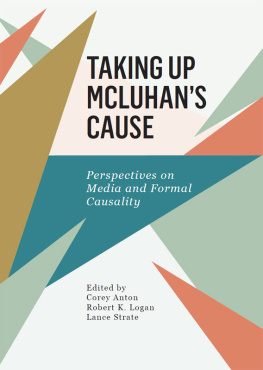Taking Socialism Seriously
Critical Studies on the Left
Series Editors:
Anatole Anton, San Francisco State University
and
Richard Schmitt, Worcester State University
Critical Studies on the Left publishes books that elaborate on alternative views to capitalism. This series will publish works that discuss the necessity of socialism and the continued vitality of social movements that call for a critique of capitalism. The series aims to develop and publish cogent, accessible socialist visions informed by the ideas and motivations of contemporary movements: peace, sustainability, identity, dignity, human rights, equality, and international solidarity. Volumes in the series will include original critiques of mainstream philosophy and social theory, as well as translations of important texts on these subjects that are not yet available in English.
Titles in the Series
Taking Socialism Seriously , edited by Anatole Anton and Richard Schmitt
Taking Socialism Seriously
Edited by
Anatole Anton and Richard Schmitt
LEXINGTON BOOKS
Lanham Boulder New York Toronto Plymouth, UK
Published by Lexington Books
A wholly owned subsidiary of The Rowman & Littlefield Publishing Group, Inc.
4501 Forbes Boulevard, Suite 200, Lanham, Maryland 20706
www.lexingtonbooks.com
10 Thornbury Road, Plymouth PL6 7PP, United Kingdom
Copyright 2012 by Lexington Books
All rights reserved. No part of this book may be reproduced in any form or by any electronic or mechanical means, including information storage and retrieval systems, without written permission from the publisher, except by a reviewer who may quote passages in a review.
British Library Cataloguing in Publication Information Available
Library of Congress Cataloging-in-Publication Data
Taking socialism seriously / edited by Anatole Anton, Richard Schmitt.
p. cm. (Critical studies on the left)
Includes bibliographical references and index.
ISBN 978-0-7391-6635-2 (cloth : alk. paper) ISBN 978-0-7391-6637-6 (ebook)
1. Socialism. I. Anton, Anatole. II. Schmitt, Richard, 1927 .
HX73.T35914 2012
335dc23
2011053189

The paper used in this publication meets the minimum requirements of American National Standard for Information Sciences Permanence of Paper for Printed Library Materials, ANSI/NISO Z39.48-1992.
Printed in the United States of America
Contents
Introduction
Anatole Anton and Richard Schmitt
| 1 | Twenty-five Questions about Socialism |
Richard Schmitt
Milton Fisk
| 3 | But What Is Your Alternative?: Reflections on Having a Plan |
David Schweickart
| 4 | Romantic Couple Love, the Affective Economy, and a Socialist-Feminist Vision |
Ann Ferguson
| 5 | Socialism, Post-Capitalism, and the Division of Labor |
Anatole Anton
| 6 | Socialism and Human Nature |
Karsten J. Struhl
| 7 | Solidarity: The Elusive Road to Socialism |
Richard Schmitt
| 8 | Is Socialism Relevant in the Networked Information Age?: A Critical Assessment of The Wealth of Networks |
Tony Smith
| 9 | Beyond Capitalism and Socialism |
Richard Schmitt
| 10 | Social Movements and Struggles for Socialism |
John L. Hammond
Index
About the Contributors
Introduction
Anatole Anton and Richard Schmitt
Four years ago Anatole Anton and I published a book called Toward a New Socialism which contained a number of very interesting essays about different aspects of a socialist society. A translation of a version of that book has recently appeared in Spanish.
Our project came to be in the face of the progressively more brutal power of capitalist institutions. It become less and less reasonable to think that capitalism might be keeping any of the promises made on its behalf by its supporters. Wealth was not trickling down; the gap between the rich and the poor was growing daily. Even the lucky ones who capitalism enriched were not happier than before. While at the same time the results of electoral politics seemed increasingly questionable, public corruption was on the rise and democracy moribund as the economy alternatively boomed and burst. Capitalism had not brought us peace and security, neither at home nor abroad, but instead involved us in endless warfare and mass slaughter. It daily became a more intense threat to the natural environment and human survival on earth. Nor have the moral requirements of racial and gender equality made great inroads.
Overwhelmed by these realities, we thought that socialism is clearly what the world needs. But, at the same time, we found that the large anti-capitalist literature had little to tell us about the detailed features of a socialist society. Hence we asked a group of our friends to write papers about their thoughts about a socialist society. They did and what emerged is a really interesting book.
But the book did not answer the question that needs answering. When you ask someone about their conception of socialism, you may very well get a description of their fantasies about a better world. They will give you their dreams and wishful thinking. But wishful thinking will not repair the ravages of capitalism. What we need are alternative institutions that we can build in the present . We need not only to ask ourselves how we imagine a better world but also how we are going to construct it in the prefiguative process of reconstructing ourselves and our social relations.
Socialism has been on the agenda for close to 200 years. It began its career as the name for a society based on cooperation and equal economic and political rights. Becoming then associated with the Marxist theory of history, socialism became a future state that would follow capitalism once that mode of production met its inevitable demise. Not much needed to be known about socialism because we would find out, when the time came, how we needed to construct a society not dominated by the private ownership of the means of production.
Socialism was going to be the opposite of a society where means of production were privately owned. For a variety of historical reasons that was taken to mean that in a socialist society the state would own and direct the economy. This conception spawned numerous socialist experimentsmost of them brutal failures.
In addition, dominant theories about socialism derived from the Marxian philosophy of history have made predictions that are clearly false. Ever since the middle of the 19th century, socialists have predicted the imminent collapse of capitalism and the victory of the united working class. Neither of those has happened so far.
Socialists have recommended political strategies which have not worked. They have organized labor unions that turned out to be solidly anti-communist. They have organized socialist political parties that became staunch supporters of capitalist institutions. They have talked grandly about international working class solidarity only to find workers flocking to their national colors when war broke out. They have created schools and families that have reproduced the very authoritarianism they were intended to overthrow.

 The paper used in this publication meets the minimum requirements of American National Standard for Information Sciences Permanence of Paper for Printed Library Materials, ANSI/NISO Z39.48-1992.
The paper used in this publication meets the minimum requirements of American National Standard for Information Sciences Permanence of Paper for Printed Library Materials, ANSI/NISO Z39.48-1992.











